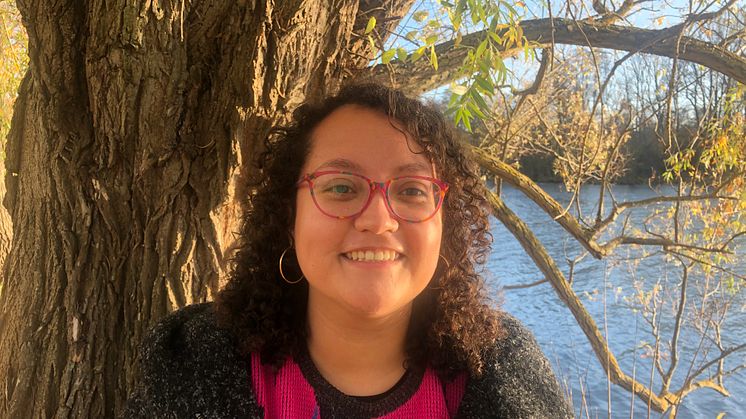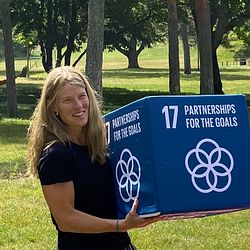
Blogginlägg -
Peace in the peaks? Changes in water and land distribution in Colombia’s southern highlands during the Post-Peace Agreement phase
Laura Betancur Alarcón received an ICLD fieldwork grant in 2018 and did her fieldwork in Colombia. She recently graduated from the International Master Programme in Environmental Studies and Sustainability Science (Lumes) at Lund University Centre for Sustainability Studies in Sweden. Her thesis, ‘Peace in the peaks? Changes in water and land distribution in Colombia’s southern highlands during the Post-Peace Agreement phase’, aimed at understanding how grassroots initiatives are formed and adapted to deal with peace and sustainability challenges in the post-conflict period in Colombia.
Here she tells us more about her fieldwork:
"The Revolutionary Armed Forces of Colombia (FARC) determined land use and imposed social and environmental norms in many rural regions in Colombia for several decades. Hence, after the signing of the peace accord between this guerrilla group and the Colombian government in 2016, new dynamics in access and uses of land led to increasingly visible social-environmental impacts across the country.
These transformations are occurring in areas like Colombia’s highlands, which supply 70% of the country’s water including Bogotá and an additional twenty mid-sized cities. However, there is no consolidated evidence as to how the post-agreement phase is impacting these key water-supply landscapes and the communities living there.
 Dairy farming is one of the most traditional economic activities of the highlands in this rural area of Palmira, Valle del Cauca. Photo: Laura Betancur Alarcón
Dairy farming is one of the most traditional economic activities of the highlands in this rural area of Palmira, Valle del Cauca. Photo: Laura Betancur Alarcón
Thanks to the ICLD Fieldwork Grant, I conducted an ethnographic study focusing on the experiences of local actors in Combia (Palmira, Valle del Cauca), a village located in the highlands of the Las Hermosas region in the southwest of the country. FARC units were the main ruling actor for two decades in this village and I went there to understand local changes in natural resources access after the guerrilla’s retreat.
Over a five-week period, I conducted twenty in-depth interviews with inhabitants, landowners, and local environmental officers. I undertook several rides in the village in order to explore the area from the settlements in the lower zones to the farms higher up in the mountains (check my fieldwork map route). I even had the opportunity to stay in several farmer houses, which enriched my understanding of the case.
I mainly found that the changes brought by the withdrawal of FARC led to the appearance of new actors, such as once-displaced large landowners and the environmental regional authority, generating changes in access, control and mobility in the region. During the wartime order, FARC imposed new land distribution rules, which mainly benefited local inhabitants without land, as a strategy to gain civilian cooperation and support. Guerilla members allowed them to use plots without the permission of the private owners.
However, after the peace agreement, peasants without land are being restricted in their access to water and land due to the return of landowners, the legal arrangements for land ownership, the procedures for obtaining legal water concessions, and the governmental decisions on water resource conservation. In the same way, other changes are occurring, like the emergence of tourism that clashes with conservation schemes and traditional peasant livelihoods in the upper zones of the highlands.
In this case, the shift in the authority figure (from non-state to state actors) reinforces unequal access to land and water, which ironically has been the core issue in Colombia’s protracted armed conflict. Further explanation about this can be found in my thesis ‘Peace in the peaks? Changes in water and land distribution in Colombia’s southern highlands during the Post-Peace Agreement phase’.
The fieldwork was a unique experience to understand firsthand what is happening at the local level with the new post-agreement dynamics in the Alta Montaña. Considering the need for field-based evidence in understanding the post-conflict phase in Colombia, this fieldwork grant was an amazing opportunity to contribute to the debate of highlands´ sustainability after the peace agreement, and also to pose new research questions about how local governance can be strengthened to promote fair armed conflict-peace transitions and to tackle the long-lasting land ownership inequality in Colombia."
/Laura
_______
The views and opinions expressed in this article are those of the author and do not necessarily reflect the official policy or position of ICLD.
